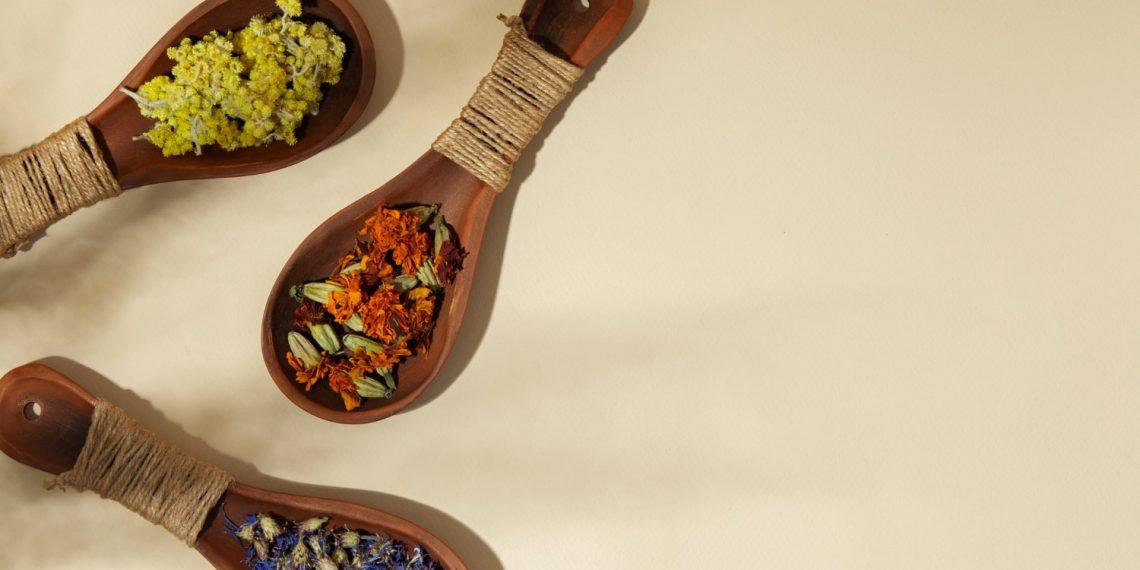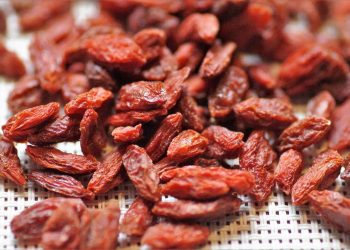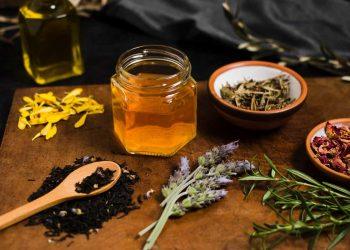Ocular herbal teas are gentle, plant-based infusions brewed to support eye health, soothe irritation, and deliver antioxidants that protect your vision. They matter because your eyes are working nonstop, and small, daily actions—like choosing the right herbs—add up to real, lasting benefit. If you want to protect your sight without relying solely on pills or prescriptions, these teas give you simple, effective tools you can trust.
Contents
- Ocular Herbal Teas: What They Are And Why They Matter
- 1. Fight Oxidative Damage With Antioxidant-Rich Blends
- 2. Reduce Inflammation And Soothe Dry, Irritated Eyes
- 3. Boost Microcirculation To Feed The Retina
- 4. Preserve Macular Pigments With Lutein-Rich Herbs
- 5. Calm Eye Strain And Improve Focus
- 6. Support Tear Film And Combat Dry Eye
- 7. Strengthen Long-Term Eye Health With Daily Rituals
- Safety And Real-World Results
- How To Talk To Your Doctor About Ocular Herbal Teas
- Measuring Progress
- Lifestyle Partners That Make Herbs Work Better
- A Final Word On Quality
- Bottom Line
- FAQ
Ocular Herbal Teas: What They Are And Why They Matter
Ocular herbal teas combine herbs known for anti-inflammatory, antioxidant, and circulatory benefits into drinkable or compressable forms that target the delicate tissues around your eyes. Think chamomile for calming, bilberry for retinal support, and eyebright for soothing irritation. When brewed properly, these blends deliver compounds your eyes crave: lutein, zeaxanthin, flavonoids, and anthocyanins.
I’ve seen people dismiss herbal teas as quaint. Don’t. Decades of research on botanicals show measurable effects on eye health when used thoughtfully. The National Eye Institute and peer-reviewed journals describe how antioxidants slow age-related macular degeneration and how circulatory-supporting herbs can ease diabetic eye strain. Science and common sense line up here.
How Herbal Compounds Reach The Eye
Your eyes are well supplied with tiny blood vessels. When you ingest herbs rich in bioactive compounds, those compounds travel through your bloodstream to feed retinal cells and reduce oxidative stress. Drinks are an especially direct route—bioavailability is good, and you hydrate at the same time. For surface irritation, you can cool a brewed tea into compresses for immediate relief. Both methods matter.
1. Fight Oxidative Damage With Antioxidant-Rich Blends
Antioxidants are frontline defenders for your retina. Herbs like bilberry, green tea, and rooibos are heavy hitters. They mop up free radicals that erode photoreceptors and proteins in the eye.
A practical blend: steep green tea and a pinch of bilberry for five minutes. Sip it twice daily. You’ll get catechins and anthocyanins—compounds shown to protect retinal cells in clinical studies. When you protect the retina now, you’re buying fewer problems later.
2. Reduce Inflammation And Soothe Dry, Irritated Eyes
Inflammation underlies many eye complaints—itching, redness, persistent dryness. Herbs such as chamomile, eyebright, and calendula calm tissues without the sting of steroid drops.
Try a cool compress: brew a strong chamomile tea, chill it, then place cotton pads over your closed eyelids for ten minutes. Do that once a day for a week and notice the tension melt away. The result is relief you feel fast.
3. Boost Microcirculation To Feed The Retina
Good circulation means your retina gets oxygen and nutrients. Hawthorn, ginkgo, and bilberry support microvascular flow. That’s especially meaningful if you have diabetes or hypertension—conditions that compromise ocular circulation.
Take a cup of hawthorn tea with breakfast. Small, steady changes compound. Over months you’ll notice reduced fogginess and better night vision—subtle signs your retina is getting the support it needs.
4. Preserve Macular Pigments With Lutein-Rich Herbs
Lutein and zeaxanthin are the pigments that shield your macula from blue light and oxidative stress. While often associated with leafy greens, certain herbal blends can complement your diet with these carotenoids.
Sage and marigold (calendula) offer supportive compounds; adding them to your routine strengthens your macular defenses. Combine a lutein-rich diet with targeted herbal teas and you give your macula a two-pronged shield.
5. Calm Eye Strain And Improve Focus
Long hours at screens leave your eyes wired and tired. Peppermint and chamomile teas relax muscles and nerves; adaptogens like ginseng can improve mental clarity without jittery caffeine.
A simple ritual helps: make a mug of eye-friendly tea during a mid-afternoon screen break. Sip slowly, breathe, and give your eyes a five-minute visual rest. Your focus returns fresher, and the habit helps prevent chronic strain.
6. Support Tear Film And Combat Dry Eye
Dry eye isn’t just uncomfortable—it’s damaging. Herbs with anti-inflammatory and mucilage properties, like marshmallow root and flaxseed, can support your tear film from the inside.
Make a mild marshmallow-root infusion and drink it once daily. The soothing mucilage helps mucous membranes throughout your body, including the delicate tissues that produce tears. Combine it with eyelid hygiene using warm herbal compresses for stronger results.
7. Strengthen Long-Term Eye Health With Daily Rituals
This is where the magic happens: consistency. A daily cup of carefully chosen ocular herbal teas builds layers of protection—antioxidant defense, improved circulation, reduced inflammation, and better tear stability.
Create a simple morning and evening ritual. Morning: a circulation-supporting tea to start your day. Evening: a calming, anti-inflammatory infusion to repair overnight. Rituals anchor behavior, and behavior changes your biology.
How To Make The Most Of Ocular Herbal Teas
- Choose quality herbs. Look for organic sources and reputable suppliers.
- Rotate herbs to cover multiple mechanisms: antioxidant, anti-inflammatory, circulatory, and mucilaginous.
- Mind interactions. If you’re on blood thinners or other medications, check with your eye doctor or pharmacist before adding herbs like ginkgo or hawthorn.
- Use both internal and topical approaches. A cooled tea compress can deliver fast relief for surface irritation, while sipping provides systemic support.
- Pair with diet. Eat leafy greens, fatty fish, and colorful fruits to amplify the herbs’ effects.
Simple Recipes That Work
- Antioxidant Blend: Green tea (1 tsp) + dried bilberry (1 tsp), steep 3–5 minutes. Drink once daily.
- Soothing Compress: Strong chamomile brew, cooled to room temperature. Apply with cotton pads for 10 minutes.
- Tear Support: Marshmallow root (1 tbsp per cup), steep 10 minutes, drink once per day.
These recipes aren’t fanciful—clinicians use similar approaches and patients report meaningful improvement in comfort and clarity.
Safety And Real-World Results
Herbal therapy is powerful but not magic. It’s a supportive strategy, not a substitute for prescribed treatments when disease is advanced. I tell people to treat herbs with the same respect they give medications: watch for reactions, adjust doses, and consult professionals when necessary.
Multiple clinical reviews and institutional guidance reflect what practitioners observe: herbs can reduce symptoms, improve measurable markers of ocular health, and support long-term vision preservation when used correctly. The American Optometric Association discusses nutrition and supplements for eye health, and research at major universities explores how specific plant compounds affect retinal function.
How To Talk To Your Doctor About Ocular Herbal Teas
Bring details. Tell your clinician which herbs you plan to use, how much, and whether you’ll apply them topically. Ask about potential interactions with your medications. Good doctors welcome intelligent patients who want to partner in care.
If you have chronic conditions like diabetes, glaucoma, or autoimmune disease, coordinate herbal use with your medical plan. Herbs can be additive, complementary, and sometimes synergistic—but they must be managed with care.
Measuring Progress
Track simple metrics: how often your eyes feel dry, frequency of irritation, clarity while reading, and night-vision comfort. Take photos if you’re tracking external redness or inflammation. Over weeks to months, these measures show whether your chosen herbal routine is working.
Small tests help too: switch to a different herb for a week and note changes. Patients often discover which herbs fit their body best by observing patterns and adjusting.
Lifestyle Partners That Make Herbs Work Better
Herbs are most effective when paired with solid basics: hydration, sleep, screen breaks, and protective eyewear. A green-tea habit plus sunglasses and the 20-20-20 rule (every 20 minutes, look 20 feet away for 20 seconds) amplifies results. Your eyes respond to cumulative care.
A Final Word On Quality
Not all teas are equal. Bulk, low-grade products often contain fillers or low concentrations of active compounds. Invest in trusted suppliers, and when in doubt, consult university extension recommendations or hospital formularies that list reliable herbal sources.
Bottom Line
Ocular herbal teas offer a practical, evidence-aligned way to protect and soothe your eyes. They work through antioxidants, anti-inflammatory action, improved circulation, and mucilage support for tear film. Used thoughtfully—paired with medical guidance and healthy habits—these teas become daily defenses that pay back in comfort and clearer vision. Trust what works, practice it consistently, and talk to your care team when you add herbs to your routine.
Be gentle with your eyes. Small daily rituals add up to big, lifelong gains.
FAQ
Can ocular herbal teas replace prescribed eye medications?
No. Herbal teas are supportive, not replacements. They ease symptoms and offer protective benefits, but prescription meds and surgical interventions remain essential for many conditions. Work with your clinician to coordinate both approaches.
How long before I see improvements from ocular herbal teas?
Some relief—like reduced irritation from compresses—can happen within days. Systemic benefits, such as improved night vision or reduced oxidative stress, typically take weeks to months of consistent use.
Are there side effects from ocular herbal teas?
Yes, herbs can cause allergic reactions, gastrointestinal upset, or interact with medications. Herbs like ginkgo or hawthorn can affect blood thinning. Check with your doctor or pharmacist before beginning any new herbal regimen.
Can I use brewed tea as an eye wash?
Only certain teas and preparations are safe as compresses. Brewing sterilely and cooling to room temperature can be safe for compresses, but avoid putting non-sterile liquid directly into the eye. When in doubt, use compresses over closed lids or consult an eye care professional.
Where should I buy high-quality herbs?
Look for organic certification, third-party testing, and vendors with a transparent sourcing policy. University extension programs and major hospital wellness pages often recommend reputable suppliers.
References
The National Eye Institute provides information on nutrition and eye health (http://www.nei.nih.gov).
Harvard Medical School publishes accessible research on antioxidants and vision (http://www.health.harvard.edu).
PubMed hosts peer-reviewed studies on botanicals and ocular health (http://www.ncbi.nlm.nih.gov/pubmed).
The American Optometric Association offers guidance on complementary approaches to eye care (http://www.aoa.org).
Get Your FREE Natural Health Guide!
Subscribe now and receive our exclusive ebook packed with natural health tips, practical wellness advice, and easy lifestyle changes — delivered straight to your inbox.















